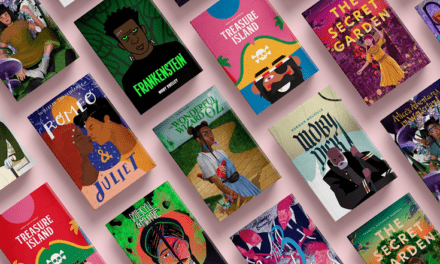
The world of DEIJ (diversity, equity, inclusion, and justice) is experiencing a drastic change. Companies that just yesterday were enthusiastically embracing DEIJ initiatives and welcoming newly appointed Chief Diversity Officers are slashing their DEIJ budgets and shifting their focus away from these efforts. The backlash is felt throughout all levels of organizations and institutions — including the decision by the Supreme Court to strike down affirmative action.
The reasons for the negative perceptions of and resistance toward DEIJ are multifold. Misinformation and misconceptions are prominent, and understanding the details requires nuanced perspective.
Some critics intentionally misrepresent the goals of DEIJ initiatives, framing them as attempts to discriminate against certain groups rather than promoting fairness and inclusivity for all. Concerns about “reverse discrimination” can arise when individuals misunderstand the purpose of affirmative action or similar policies designed to address historical inequities, perceiving these policies as outdated, unfair, or harmful.
Critics also portray DEIJ advocates as extremists and their efforts as an attack on free speech and academic freedom. Inherent to this criticism is an assumption that these initiatives will diminish freedom for those currently holding power and privileges. Although such scarcity-centered thinking and polarization are very typical (and human) responses when our perceived status or values are threatened, these oversimplified narratives make it extremely difficult to engage in constructive dialogue about these topics and find common ground.
Yet … abandoning DEIJ efforts is not an option. It is important for those involved to remain committed to their goals and principles, even in the face of opposition. Creating opportunities for dialogue and continued education will help mitigate fear-based narratives and address misconceptions about this work. Engaging allies from various backgrounds and levels within the organization can help strengthen DEIJ initiatives and communicate the benefits of this work. In 2023, DEIJ initiatives have evolved and adapted to address the changing social, political, and business landscape, and they still play an important role in helping organizations survive and thrive.
One of the ways DEIJ is shaping companies is helping to foster more equitable and inclusive cultures. Organizations that focus only on recruiting diverse talent while ignoring retention, talent development, and sponsorships, are likely to find themselves running out of steam (and turning sour) on DEIJ efforts very quickly. There is tremendous value in diversity and its impact on everything from performance to innovation (as a myriad of studies will confirm); however, diversity for the sake of diversity should not be the sole target for organizations. Diversity should be the outcome of efforts to build a culture where employees feel like they belong. Neglecting inclusion can create an environment where marginalized groups feel unwelcome or isolated, which not only negatively affects their engagement and performance, but also the organizational ability to attract and retain talent overall.
Building inclusive cultures and creating belonging has enormous upsides to both employees and the organization — from lower attrition, higher engagement, and collaboration to improved productivity and increased innovation. The energy that would normally be spent on carefully crafting an “acceptable” persona can now be directed toward achieving goals, collaborating with colleagues, taking risks, and finding creative solutions. All the more reasons organizations should shift their focus away from chasing arbitrary diversity goals and instead put their energy toward creating a culture of acceptance and belonging.
Despite the current backlash to DEI priorities, many companies are still committed to their goals and are using this crisis as an opportunity to further the efforts. Below are just two examples from the largest organizations that are continuing these initiatives and are able to reap the benefits DEIJ can bring.
- Johnson & Johnson has created a worldwide DEI vision: Be yourself, change the world. The company dedicates significant resources to ensure that employees at all levels participate in cultivating a culture of inclusion. Leadership actively encourages staff members to share their unique experiences, backgrounds, and skills and create a global collaborative community. These efforts are bolstered by 12 employee resource groups (ERGs) that connect and engage employees, foster communication, and break down silos. Diversity is not a singular goal — neither it is an afterthought for the company, as it aims to achieve a 50 percent representation of women in management positions worldwide by 2025. Johnson & Johnson has also been featured on the Working Mother 100 Best Companies list for 28 consecutive years.
- Lenovo, a multinational technology company, has been recognized numerous times for its D&I initiatives in several categories. The organization has also received accolades from the Disability Equality Index for being one of the “best places to work for disability inclusion.” Additionally, Lenovo is ranked on the Human Rights Campaign’s Best Companies for LGBTQ+ inclusion for the fifth year in a row. They’ve also committed to increasing the number of women in executive positions from 21 percent in 2020 to 27 percent by 2025, and executives from historically underrepresented ethnic and racial groups to 35 percent by 2025. The company integrates DEI work throughout the business, and leadership is committed to the work.
DEIJ work, although challenging and politicized, is just as relevant today as it always has been. Organizations that continue engaging with the effort successfully are focusing on the following strategies:
- Emphasizing inclusion: Stress that DEIJ initiatives aim to create a more inclusive and equitable society for everyone, rather than targeting or disadvantaging particular groups.
- Encouraging transparency and promoting education: Share clear and transparent information about the goals and methods of DEIJ initiatives to counter misinformation and alleviate fears.
- Engaging the whole company and building alliances: Seek to engage a broad spectrum of stakeholders, including those who might initially be opposed. Collaboration and understanding can help mitigate fear-based opposition.
It is not surprising that DEIJ work is very emotional and can be quite exhausting both mentally and physically for those involved in the efforts. The work involves passion and desire for change — as well as inevitable skepticism, resistance, and even conflict.
In organizations juggling multiple challenges and demands while trying to allocate limited resources to solve them, diversity, equity, and inclusion are often viewed as “nice-to-have” features. Yet only by persevering, even in this volatile and polarizing environment, can organizations continue to make progress in this field: achieving nontrivial results that benefit not only the underrepresented groups but the organization as a whole.



















